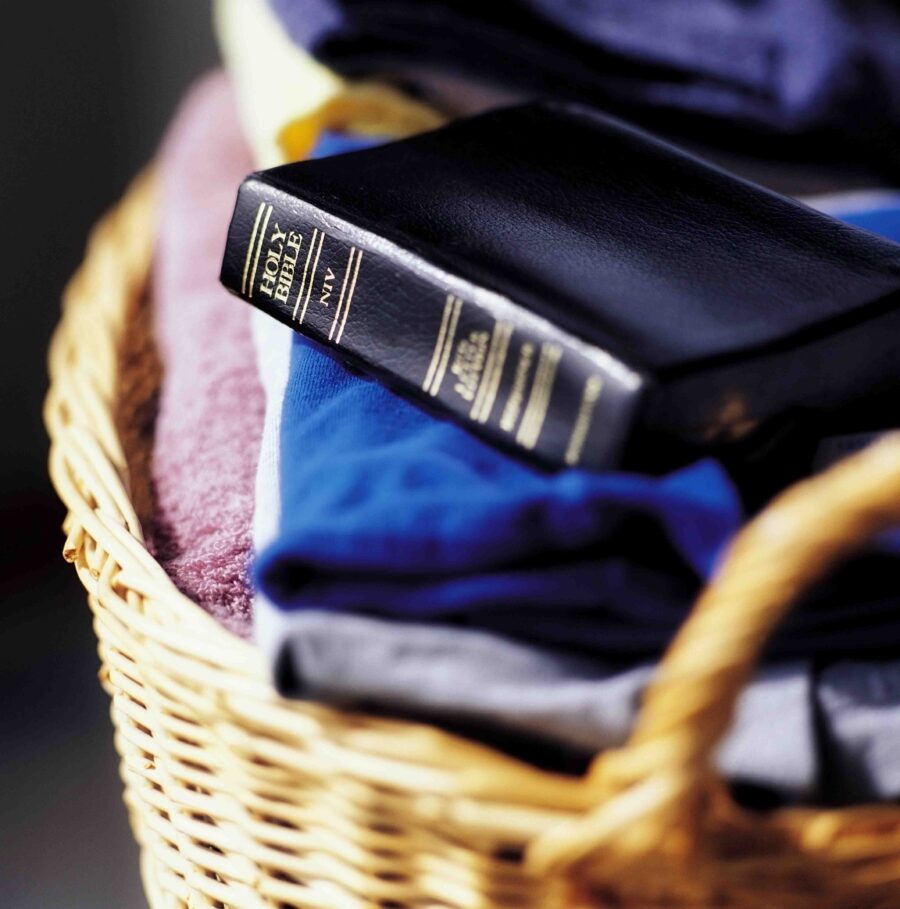When I took my job as a nanny/housekeeper, I had no idea how much repetition it would involve. My days revolve around the never-finished tasks of preparing food, making beds, washing dishes, putting away clothes, assisting with homework, sweeping floors, etc. At first I resented the sisyphean nature of housework–it seemed a cruel waste of time that yielded no truly satisfying and conclusive results. Ask any homemaker and they could tell you that the dishes are never actually done. The minute you load the last cup into a full dishwasher, a child runs in, grabs a new glass, fills it with milk or lemonade, and the cycle begins all over again.
After awhile though, I began to notice that I enjoyed the rhythmic nature of my chores. It felt comfortable– like running my hand over smooth, weather beaten stones or hiking a well-trodden path through the woods. The structure of the chores provided a stable place for me to inhabit. I entered into space that made sense–space familiar and secure enough for me to move gracefully within.
The rhythm of the chores, the litany of repeated actions, reminded me of the liturgy. Often times doubt is cast on the repetitive nature of liturgy–the same prayers, mouthed every week, the kneeling and standing at certain moments, the redundancy of the actions and words–are judged to have a predisposition toward the ritualistic rather than the heartfelt. But I’ve learned that my soul needs that repetition. I need to participate in the liturgy each week, and re-enter the great Narrative of the Universe. I need to take my place in the vast expanse of the cosmos. I need to be reminded of who I am. I need to confess my sins, and then share the peace of Christ with fellow believers. Ultimately, I need to have Christ come down to me and accept me once again in the great spaciousness of His love. I need to relive the great Story, re-experience redemption and have all the craziness of life settle down like dust around me as once again, I enter into the Reality of God so loving the world, so loving me, that He gave his Son.
The rhythmic proceeding of house work is a gift–for it is an invitation to enter into the meaning of things. To live close to life. To live close to the rhythms of existence designed by God for our good. There are prayers to be prayed while preparing food, and washing dishes, and making beds. Prayers that change us and remind us who we are and why we are alive and open windows through which we can see things invisible.
Sometimes I pray words like this as I prepare food for the next meal:
O God, Father and Creator, thank you for this food with which you feed us. Thank you that even as you give us food, you give us life.In your great mercy, You sustain us. In You we live and move and have our being.
Or a prayer like this as I fold and put away clothes:
Thank you, Father, for the clothes we wear, and for all that you provide–even the littlest comforts of life. Help us to remember that in the Garden, you clothed Adam and Eve, and that now you have clothed us in Christ, and put our shame far from us. By your grace we are clothed in righteousness. And help us also to remember all those in this life who do not have the food or clothes they need to survive. May we, as much as it is in our power, give of ourselves to feed and clothe them.
We do not participate in the liturgy once and for all. As long as we live, we need the rhythms of worship, confession, exhortation, and communion governing our days. As for the mundane repetitions of daily life, perhaps they are not mere tasks to be gotten through. Perhaps instead they are gifts, imbedded in time and space, to remind us of our dependence, our blessedness, and our purpose.





1 Comment
Leave your reply.